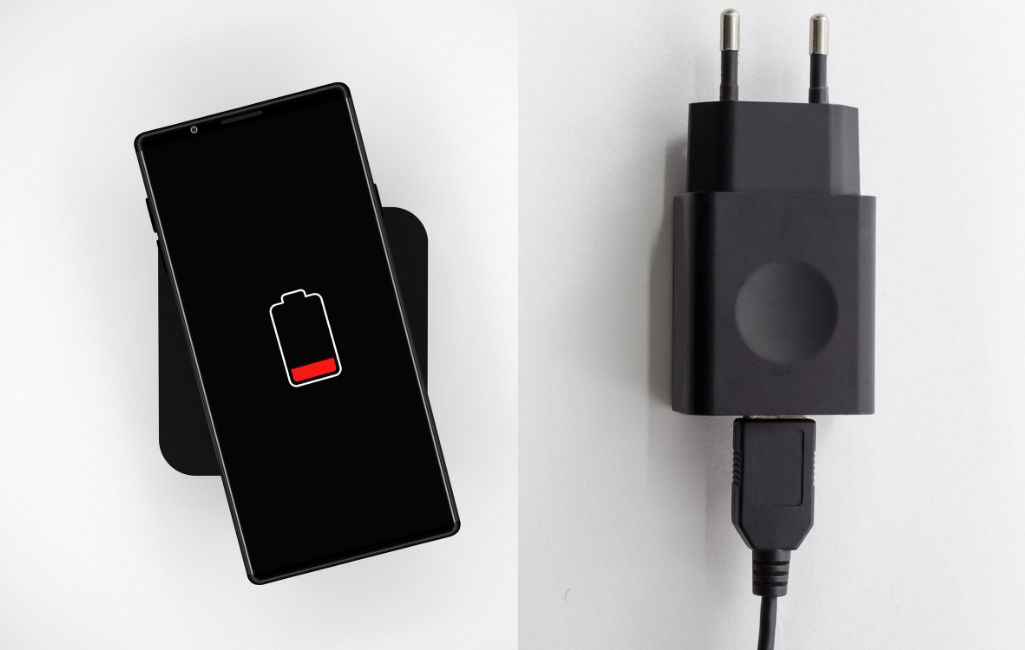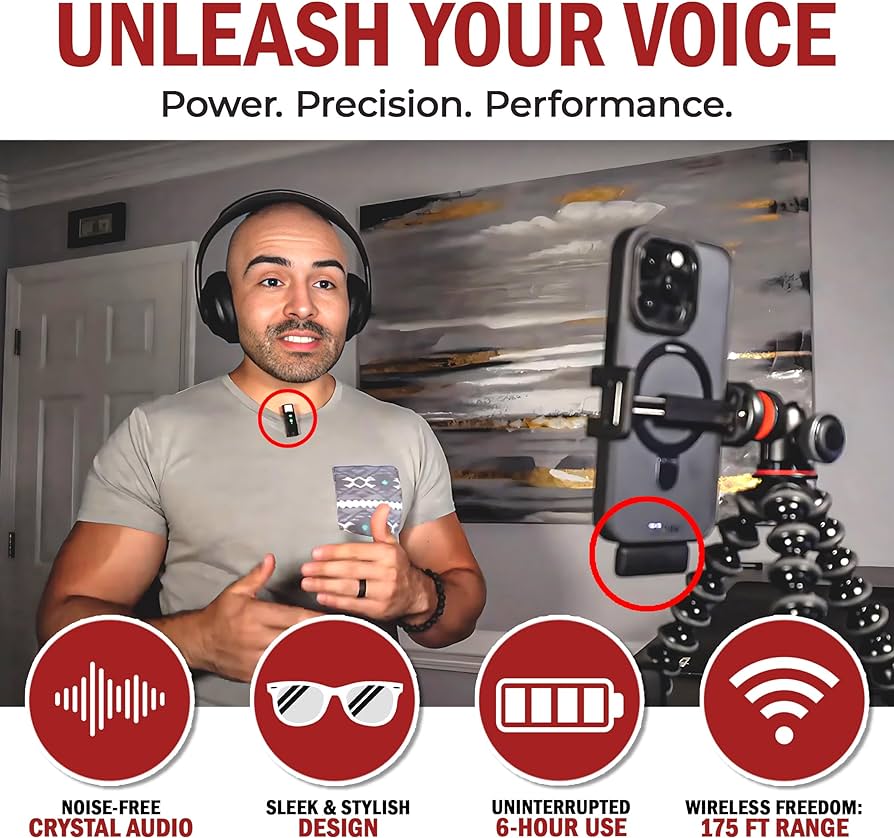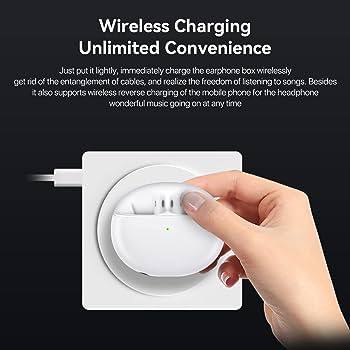How Fast Is Wireless Charging Compared To Wired
In the ever-evolving landscape of technology, the race to create seamless, efficient, and lightning-fast charging solutions continues to captivate the attention of tech enthusiasts worldwide. As our reliance on smartphones, smartwatches, and a plethora of portable devices deepens, so does our craving for charging methods that align with our fast-paced lives. Among the contenders in this charging arena, two primary contenders have emerged: convenience-driven wireless charging and steadfast wired charging.
In this tech-centric exploration, we delve into the heart of the matter: How Fast Is Wireless Charging Compared To Wired? Are the days of tangling cords and searching for power outlets numbered, or does the traditional wired connection still hold its ground regarding charging speed and reliability?
In the following sections, we’ll unravel the intricate workings of both wireless and wired charging technologies, dissect the variables that affect their charging speeds, and finally, offer a comprehensive overview of the current state of the speed race. So, buckle up as we embark on a journey through electrons, electromagnetic fields, and the quest for the ultimate charging convenience.

How Fast is Wireless Charging Compared to Wired?
Wireless charging has become increasingly popular in recent years, providing a convenient and cable-free way to charge our devices. But how does wireless charging compare to the traditional wired method in terms of speed? In this article, we will explore the differences between wireless and wired charging and determine which method is faster.
Wireless Charging: The Basics
Wireless charging utilizes electromagnetic fields to transfer power from a charging pad to your device. Instead of plugging in a cable, you simply place your device on a compatible wireless charging pad or stand. The charging pad contains a coil that produces the electromagnetic field, while your device has a coil that receives the energy and converts it back into electrical current to charge the battery. This method offers the convenience of not having to deal with tangled cables and fumbling with ports, but how does it stack up in terms of speed?
Charging Speed and Efficiency
Charging speed can vary depending on the wireless charging standard and the capabilities of your device. Generally, wireless charging is slightly slower than wired charging. Most wireless chargers offer a power output of 5 watts, while some high-end chargers can go up to 15 watts. In comparison, wired chargers can provide power outputs ranging from 10 to 100 watts. This means that wired charging can deliver more power to your device, resulting in faster charging times.
However, it’s important to note that the actual charging speed will also depend on the capacity of your device’s battery. For example, if you have a device with a large battery capacity, it will take longer to charge regardless of whether it’s plugged in or placed on a wireless charging pad. On the other hand, if your device has a smaller battery capacity, the difference in charging speed between wireless and wired methods may be less noticeable.
Convenience and Flexibility
While wireless charging may be slightly slower than wired charging, it offers unparalleled convenience and flexibility. With wireless charging, you can simply place your device on a charging pad or stand without having to worry about plugging and unplugging cables. This is particularly useful in situations where you need to quickly charge your device, such as when you’re on the go or in a busy environment.
Furthermore, wireless charging allows for more freedom of movement. You can easily pick up your device from the charging pad and continue using it without being tethered to a cable. This flexibility is especially beneficial for those who rely heavily on their devices throughout the day and need quick access to them at all times.
Overall, while wireless charging may not be as fast as wired charging, the convenience and flexibility it offers make it a popular choice for many users. The slight difference in speed is often outweighed by the hassle-free charging experience that wireless charging provides.
Factors Affecting Charging Speed
Although wireless charging is generally slower than wired charging, there are several factors that can affect the speed at which your device charges wirelessly. Let’s take a closer look at these factors:
Wireless Charging Standard
The charging speed can vary depending on the wireless charging standard supported by your device and the wireless charger you’re using. There are different standards, such as Qi (pronounced “chee”) and AirFuel, each with its own specifications. The Qi standard is the most widely adopted and supports power outputs ranging from 5 to 15 watts. The newer AirFuel standard offers even higher power outputs.
It’s important to ensure that your device and wireless charger are compatible with the same charging standard to achieve optimal charging speed. For example, if you have a device that supports 15 watts of wireless charging, using a charger that only provides 5 watts will result in slower charging.
Alignment and Placement
Proper alignment and placement of your device on the charging pad can also impact charging speed. Wireless charging works through electromagnetic induction, which requires the coils in the charger and your device to be aligned for efficient power transfer. If the alignment is off or your device is not placed correctly on the charging pad, it can lead to slower charging or even failure to charge.
To ensure optimal charging speed, make sure your device is centered on the charging pad and the coils are properly aligned. Some wireless chargers even have alignment indicators or built-in magnets to assist with proper placement.
Charging Distance
The distance between the charging pad and your device can also affect charging speed. Different wireless charging technologies have different charging distances, with some requiring closer proximity for efficient charging. If your device is too far away from the charging pad, it may result in slower charging or no charging at all.
It’s important to keep the charging distance in mind when using wireless charging. Ensure that your device is within the specified range of the charging pad for optimal charging speed and efficiency.
Overall, while wireless charging may not be as fast as wired charging, advancements in wireless charging technology have improved charging speeds over the years. When considering whether to use wireless or wired charging, it’s important to weigh the convenience and flexibility of wireless charging against the slightly slower speed. For many users, the benefits of wireless charging outweigh the minimal difference in charging time. So go ahead and enjoy the cable-free charging experience that wireless charging provides!


Key Takeaways: How fast is wireless charging compared to wired
- Wireless charging is generally slower than wired charging.
- Wireless charging typically takes longer to fully charge a device.
- Wired charging offers faster charging speeds compared to wireless charging.
- For quick charging, wired charging is the preferred option.
- However, wireless charging provides convenience and eliminates the need for cables.
Frequently Asked Questions
Welcome to our FAQ section where we answer common questions about the speed of wireless charging compared to wired charging.
Can wireless charging be as fast as wired charging?
Wireless charging, while convenient, is generally not as fast as wired charging. This is mainly due to the lower power transfer efficiency of wireless charging technology. The energy generated by the wireless charger has to travel through the air to reach your device, resulting in some energy loss along the way. As a result, the charging speed is typically slower than with a wired charger.
However, wireless charging technology is continuously advancing, and newer standards like Qi 1.2 and Qi 4.0 are improving charging speeds. Some high-end smartphones also support fast wireless charging, which can be relatively comparable to wired charging. It’s important to note that the speed of wireless charging may vary depending on the specific devices and chargers used.
How much slower is wireless charging compared to wired charging?
Wireless charging is generally slower than wired charging, with a significant part of the energy being lost during the charging process. On average, wireless charging can be around 30% slower than wired charging. This means that if a wired charger takes 1 hour to fully charge your device, a wireless charger might take around 1 hour and 30 minutes.
However, it’s important to remember that charging speeds can vary depending on the specific devices, wireless charger models, and even the distance between the charging pad and the device. Some newer wireless chargers are designed to enhance charging efficiency and reduce charging time, so it’s worth exploring different options if faster wireless charging is a priority for you.
Are there any benefits to wireless charging despite its slower speed?
Yes, there are several benefits to wireless charging that make it worth considering, even if it’s not as fast as wired charging. One significant advantage is the convenience it offers. With wireless charging, you don’t need to fumble with cables or connectors; you simply place your device on the charging pad, and it starts charging.
Wireless charging also eliminates wear and tear on charging ports, as you don’t have to constantly plug and unplug cables from your device. This can prolong the lifespan of your device and reduce the chances of charging port damage or issues. Additionally, wireless charging can be more aesthetically pleasing, as there are no visible cables cluttering your workspace.
Can I use a wireless charger and a wired charger interchangeably?
Yes, you can use both a wireless charger and a wired charger interchangeably, depending on your needs and preferences. Having a wired charger offers the advantage of faster charging speeds when you need your device charged quickly. On the other hand, a wireless charger is ideal for convenience and ease of use, especially in situations where you need to charge your device intermittently throughout the day.
Many devices nowadays support both wired and wireless charging, so you have the flexibility to choose the charging method that suits your current situation. It’s worth noting that using a wireless charger does not affect the compatibility or performance of your device with a wired charger, and vice versa. You can easily switch between the two depending on your needs.
Is wireless charging safe for my device?
Yes, wireless charging is generally safe for your devices. Wireless chargers undergo strict testing and certification processes to ensure they meet safety standards. However, it’s still important to use reputable and certified wireless chargers to minimize any potential risks.
One thing to keep in mind is that wireless charging can generate heat during the charging process. However, most wireless chargers have built-in safety mechanisms to prevent overheating. It’s always a good idea to monitor your device while it’s charging and ensure proper ventilation to prevent excessive heat buildup.


Wired Charging Vs. Wireless Charging: Which is Better and Why?
Summary
Wireless charging is convenient but slower compared to wired charging. It uses electromagnetic fields to transfer power to your device. Although it may take longer, wireless charging eliminates the need for cables and plugs. Wired charging, on the other hand, is faster because it directly connects your device to a power source. So, if you’re in a hurry, wired charging is the way to go. But if you prefer a hassle-free charging experience, wireless charging is worth considering.




